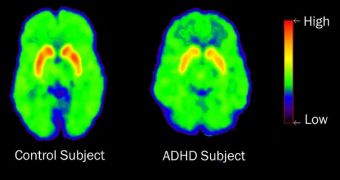In a paper appearing in the latest issue of the American Journal of Psychiatry, experts indicate that siblings may in fact bear a more considerable influence on each other than first thought.
During a new series of experiments, investigators learned that the brothers and sisters of those suffering from attention deficit hyperactivity disorder (ADHD) and deficient emotional self-regulation (DESR) were more likely to develop the conditions themselves than the siblings of healthy children.
The investigation was carried out to assess the risk that siblings were exposed to of developing both conditions, when their brothers and sisters suffered from both ADHD and DESR.
For this study, DESR was defined as experiencing emotional reactions whose intensity is disproportionate to the severity of the events and situations that caused them. Increasing numbers of children today are starting to develop this condition.
“Our research offers strong evidence that heritable factors influence how we control our emotions. Emotion and capacities such as the ability to pay attention or control physical movement are probably under forms of brain control that we are just beginning to understand,” says Craig Surman, MD.
“Our findings also indicate that ADHD doesn’t just impact things like reading, listening and getting the bills paid on time; it also can impact how people regulate themselves more broadly, including their emotional expression,” the expert goes on to say.
Surman who was also the lead author of the journal entry, holds an appointment with the Pediatric Psychopharmacology and Adult ADHD Program at the Massachusetts General Hospital (MGH).
The thing that led researchers to conduct this study was the fact that ADHD patients are sharing some of their symptoms with DESR sufferers. These include frustration, anger and impatience.
Some investigations have proposed in the past that poor emotional control – one of the key traits of DESR – be included in the list of symptoms for ADHD. However, it is currently unclear whether the two conditions are related or not.
Studies are currently being conducted to determine whether they appear in concert by accident, or whether they are in fact different manifestations of the same underlying issue, PsychCentral reports.
“Other research that we and another group have conducted found that individuals with ADHD who also display emotional overreaction have a reduced quality of life and difficulties with personal relationships and social success,” Surman explains.
“Studies have shown that 4 percent of the adult population has ADHD, and this investigation is part of a larger study that found DESR in more than half of the enrolled adults with ADHD, suggesting that roughly 5 million adults in the U.S. may have the combination of ADHD and poor emotional control,” he adds.
“Increased recognition of emotional dysregulation, its frequency in adults with ADHD and the potential consequences of both conditions will help people get support for these challenges,” he goes on to say.
“Future research needs to examine both medication- and non-medication-based therapies and improve our understanding of who could benefit from these therapies,” the expert concludes.

 14 DAY TRIAL //
14 DAY TRIAL //